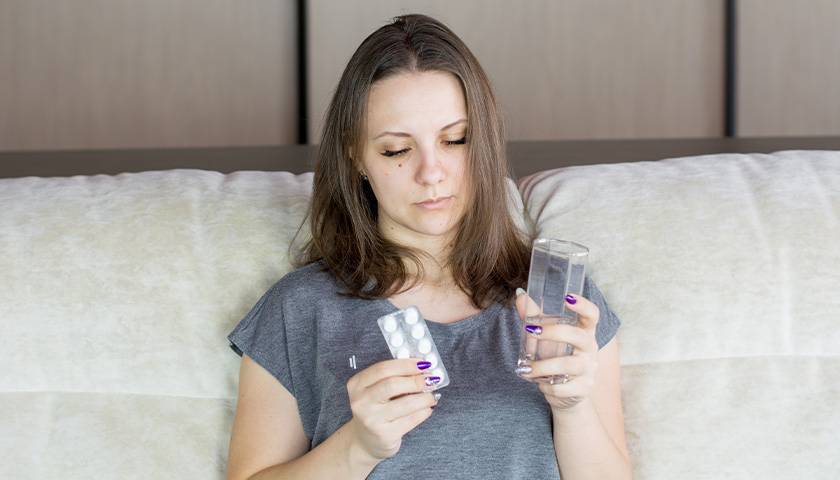A study from the UK finds women who began using the combined contraceptive pill as teenagers increased their risk of depression by up to 130 percent, while those who began to use the contraceptive in their 20s or older showed a 92 percent increased risk of depressive symptoms.
The population-based cohort study that utilized data from more than 250,000 UK Biobank women was published in Epidemiology and Psychiatric Sciences and online by Cambridge University Press.
The researchers set out to address the inconsistent findings regarding the effect of oral contraceptive (OC) use on the risk of depression.
“One possible reason for this inconsistency is the omission of women who discontinue OCs due to adverse mood effects, leading to healthy user bias,” the researchers noted. “To address this issue, we aim to estimate the risk of depression that is associated with the initiation of OCs as well as the effect of OC use on lifetime risk of depression.”
The study’s authors, Therese Johansson et al, explained their findings are comparable to those of previous studies:
In this study, including 264,557 women, we showed that OC use is associated with an increased risk of depression shortly after initiation. The increased risk declined with continued OC use, but the lifetime risk associated with ever OC use remained significantly increased. Our findings are comparable to what was found in a Danish study (Skovlund et al., 2016)” … and “to what was seen in a study estimating the risk of suicidal behaviour, which was found to be higher during the initial use of OC (Edwards et al., 2022).”
The researchers note their work is “observational, which limits the ability to make inferences about causality.”
“Therefore, we aimed to provide supporting evidence of a causal relationship between OC use and depression through the examination of familial confounding in sister pairs,” they noted.
Information about mental health was obtained via verbal interviews, diagnostic data, and questionnaires.
The study found that, compared to those who never used OCs, the first two years of contraceptive use were associated with a higher rate of depression. While the risk was not as severe after the first two years, having ever used OCs was still linked to an increased lifetime risk of depression.
Additionally, those women who previously used contraceptives were associated with a higher rate of depression compared to those who never used them. Teens who used OCs accounted for the increased risk.
The sibling analysis conducted by the researchers provided additional evidence for a causal effect of OC use on the risk of depression, they noted.
The researchers summarized their results:
Our findings suggest that the use of OCs, particularly during the first 2 years, increases the risk of depression. Additionally, OC use during adolescence might increase the risk of depression later in life. Our results are consistent with a causal relationship between OC use and depression, as supported by the sibling analysis. This study highlights the importance of considering the healthy user bias as well as family-level confounding in studies of OC use and mental health outcomes. Physicians and patients should be aware of this potential risk when considering OCs, and individualized risk–benefit assessments should be conducted.
The Catholic Herald highlighted the study in a piece published Friday.
– – –
Susan Berry, PhD is national education editor at The Star News Network. Email tips to [email protected]
Photo “Woman Using Contraception” by Bermix Studio.




